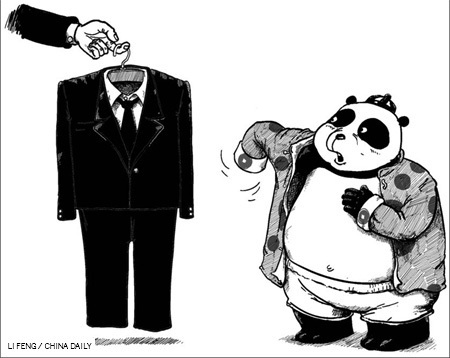Opinion
Globalization is not equal to national interest
By Martin Albrow (China Daily)
Updated: 2010-07-01 14:33
 |
Large Medium Small |
There's one word we are unlikely to hear from the new British government and that is "globalization". Even though there may be countries in worse trouble as a result of the global financial crisis, such as Greece, no other has experienced it quite so much as a psychological shock as Britain. For Britain, first in the 1980s under Margaret Thatcher and the Conservatives and then, after 1997, under Tony Blair, Gordon Brown and New Labour, globalization appeared to be the answer to a historic problem.
That problem was the loss of Empire. In the aftermath of World War II former US secretary of state, Dean Acheson, famously said that Britain had lost an Empire and not found a role. Though militarily relatively insignificant and with a tiny economy compared with the United States, the new imperial superpower, this small country aimed to be "global Britain", demonstrating the benefits of globalization to the whole world in raising standards of living and promoting liberal values.
|
||||
Britain might no longer rule the world, but it could be an example to it, of how a country could take on a global role for the benefit of humankind. It was not disconcerted by the downsides of economic globalization, like the disruption of national markets, mass migration to cities and across borders, and growing inequality between rich and poor. In response, Britain became a cheerleader for meeting United Nations targets on aid, and on global environmental and health issues.
|
 |



